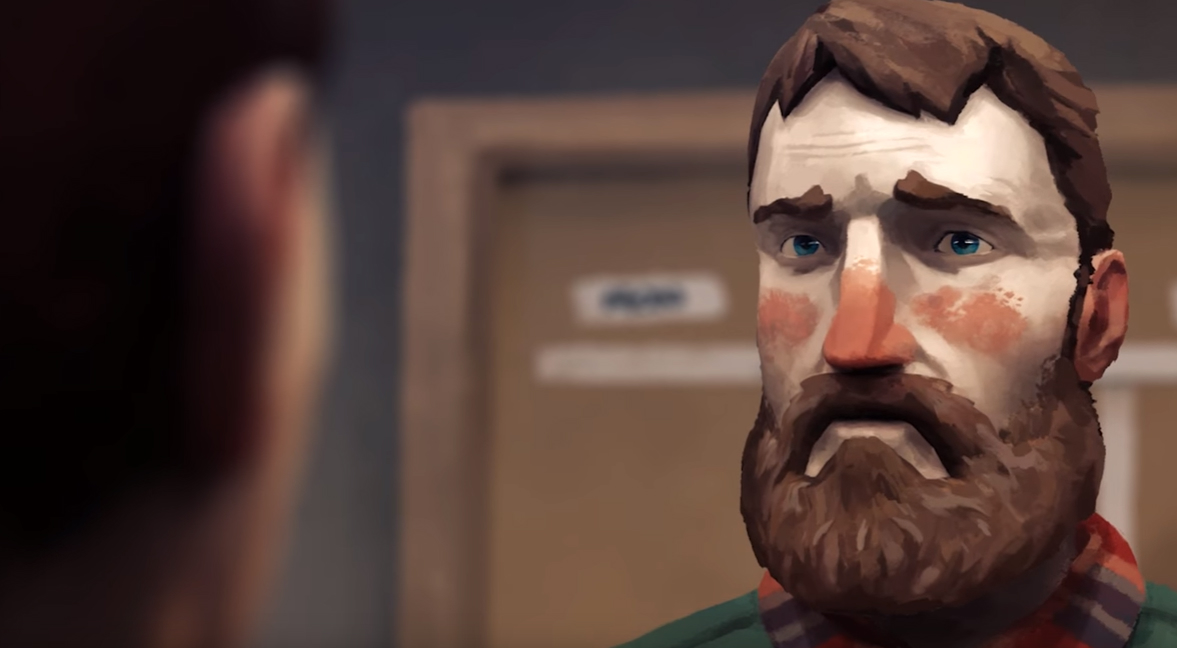Nvidia didn't have permission to put The Long Dark on GeForce Now, developer says
It's been pulled, joining Activision and Bethesda's games.

GeForce Now, Nvidia's new streaming service, has shed another game. Last month, it lost Activision's games because of a "misunderstanding," followed soon after by most of Bethesda's, and now it's down The Long Dark, Hinterland Studio's chilly survival sandbox.
Rather than a miscommunication, this time there seems to have been no communication at all. According to creative director Raphael van Lierop, Nvidia added The Long Dark to its service without asking the developer for permission.
On Twitter, Lierop explained that Hinterland asked Nvidia to remove it and apologised to players who have to put their excursion into the Canadian wilderness on hold, at least on GeForce Now. "Devs should control where their games exist," he added.
Sorry to those who are disappointed you can no longer play #thelongdark on GeForce Now. Nvidia didn't ask for our permission to put the game on the platform so we asked them to remove it. Please take your complaints to them, not us. Devs should control where their games exist.March 1, 2020
Apparently Nvidia offered the developer a graphics card as an apology, which seems more like something you'd give a disgruntled customer, not a business partner. "Maybe they'll offer you the same thing," Lierop joked in a follow-up tweet.
Unlike Stadia, GeForce Now doesn't have a game store; it's a service that lets you stream PC games you already own to other devices. It also supports a substantially larger number of them, though it's already lost quite a few since it launched, including Diablo 3, Overwatch and Call of Duty: Modern Warfare.
Activision asked for its games to be removed until a commercial agreement had been made. It had partnered with Nvidia for the beta, but there was apparently a misunderstanding about whether or not that extended to the 90-day trial period that kicked off with the service's launch.
In response to the suggestion that developers and publishers shouldn't get to decide where their games get installed, Van Lierop pointed out that Hinterland's distribution agreement is with Valve, not Nvidia, and the developer has a choice about who can sell access to its games.
Keep up to date with the most important stories and the best deals, as picked by the PC Gamer team.
Because they sell this service based on access to a library of content. We have the choice whether to be in that library or not. Our distribution agreement is with Valve, not with Nvidia.March 1, 2020
Another concern for developers might be the impact it has on potential ports. Van Lierop agreed with digital entertainment lawyer Pete Lewin, who noted that it "kills the ability to commercialise ports for new platforms (partic mobile) or to negotiate exclusivity deals."
In both Hinterland and Activision's cases, the main issue seems to be that Nvidia just didn't bother to ask. Even if it's not selling the games, it's using them in its library to promote GeForce Now. Hinterland might have agreed, if that had happened.
GeForce Now made a great first impression, with Joanna and Jarred calling it the "cloud gaming service Stadia should be," but once the trial period is over, one of its biggest draws might not be quite as attractive. The game library, even with these losses, is still pretty robust, but any of these games could vanish after the trial.
"As we approach a paid service, some publishers may choose to remove games before the trial period ends," reads the blog post from Nvidia. "Ultimately, they maintain control over their content and decide whether the game you purchase includes streaming on GeForce Now. Meanwhile, others will bring games back as they continue to realize GeForce Now's value."
It's not clear if or when any of the games that have recently left GeForce Now will be returning. I've reached out to Nvidia and will update the article if I get a response.

Fraser is the UK online editor and has actually met The Internet in person. With over a decade of experience, he's been around the block a few times, serving as a freelancer, news editor and prolific reviewer. Strategy games have been a 30-year-long obsession, from tiny RTSs to sprawling political sims, and he never turns down the chance to rave about Total War or Crusader Kings. He's also been known to set up shop in the latest MMO and likes to wind down with an endlessly deep, systemic RPG. These days, when he's not editing, he can usually be found writing features that are 1,000 words too long or talking about his dog.

